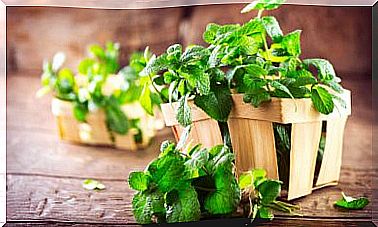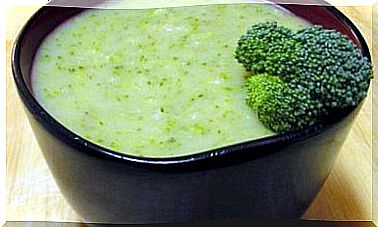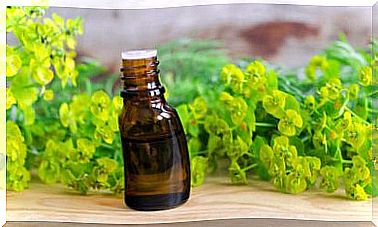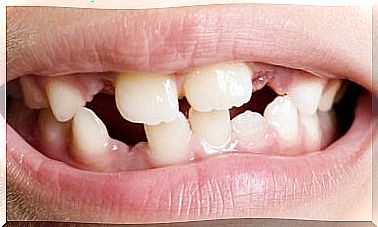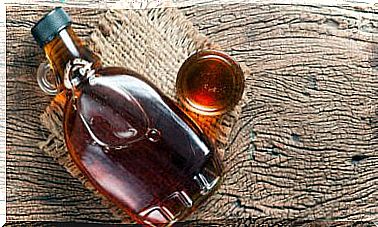How To Prepare Organic Pesticides, Fertilizers And Insecticides
Do you have a nice garden or a terrace with the most varied flowers and even a small garden? So, something that will undoubtedly worry you is having the best pesticides, fertilizers and insecticides.
Now, you already know that many of these products sometimes alter the final result, be it the fruit or the flower. If we are going to consume what we grow, then we will look for the healthiest components.
We are also concerned about those dangerous pesticides that can affect our health, or that pose an unnecessary risk, especially if we have children at home. Therefore, from our space we invite you to learn how you can prepare your own organic pesticides, fertilizers and insecticides. Take note!
Fertilizers and pesticides: better if they are ecological

Plants, like the small crops that we can have in our gardens or terraces, also suffer from the attack of aphids and other pests. The first thing we always do is look for products that give us a quick solution to take care of them, but we have to take into account the following aspects:
- Fertilizers and pesticides contain dangerous synthetic chemicals that can harm the plant itself.
- Do not think that because they are chemical products they will be more effective (article in the Journal of Peruvian Medicine and Public Health). Organic produce can be just as helpful in stopping pests.
- Using chemicals like nitric acid, sulfuric acid, and ammonia, what they actually do is poison the earth. We do not nurture it, so in the long run they are more problems than benefits.
- By using organic organic fertilizers and insecticides we make sure that the plant grows normally, that we take care of our health and the environment in general.
- The soil and the earth will continue to be nourished with those essential microorganisms that will make our small garden a scene of health and with ample possibilities.
Ecological pesticides and insecticides
1. Absinthe

Wormwood is a plant with a very bitter taste that is often used to treat irritable colon or to resolve infectious processes. It is very powerful.
Regarding its use as a pesticide, you will like to know that absinthe is very effective in repelling aphids, mites, piglets and ants.
In addition, according to this study carried out by the Quito Headquarters University, it would be verified that absinthe does not harm the plant and is a fantastic ecological pesticide.
Ingredients
- 300 grams of dry wormwood
- 1 liter of water
Preparation
- The 300 grams of dry wormwood are macerated for a week with the liter of water.
- Afterwards, we strain the content and take it to a bottle with a diffuser to moisten the plants. It is very useful!
2. Vegetable olive or sunflower oil

A simple resource that always brings good results.
Some mineral oils serve as a good repellent for insects and mites, and although sunflower oil there is no scientific evidence that includes it as a pesticide …
Olive oil in particular, according to this study published by the Mexican Journal of Phytopathology, would be a great help to prevent the attack of biotrophic fungi in food.
To achieve this, take a brush and smear the leaves of the little plant that you want to protect with the chosen vegetable oil.
3. Garlic

Garlic is the best known natural insecticide, as well as one of the most useful. It will allow us to drive away all kinds of insects from your plants or garden.
According to an article published by the Science Magazine :
Ingredients
- 1 head of garlic
- 3 cloves
- A glass of water (200 ml)
Preparation
- Crush a whole head of garlic along with three cloves.
- Mix them with a glass of water and then allow it to sit overnight.
- The next day you should mix that glass of water with another 2 liters of water (you do not need to remove the garlic and cloves).
- Now, you just have to take it to a bottle and spray directly on the leaves of the plants you want to protect.
Garlic, chilli and onion insecticide
Chilli pepper is a great insecticide together with garlic and onion to create an insecticide capable of even eliminating bed bugs.
You will love trying this simple product so useful to eliminate aphids, spider mites and whiteflies. And how should we prepare it? Take note, it’s very easy.
Ingredients
- 3 garlic cloves
- 2 onions
- 3 fresh chillies
- 500 ml of water
Preparation
- Start by cutting and grinding all the ingredients, and then let them rest for a whole night with that half a liter of water.
- The next day, you will only have to filter the content and dilute it in two liters of water. It never fails!
4. Baking soda
Using Sodium Bicarbonate according to a study published by the Ibero-American Journal of Postharvest Technology , we are going to get an excellent fungicide.
To achieve this and enjoy the best flowers and vegetables in your garden and garden, just combine 10 grams of bicarbonate in a liter of water, 25 grams of vegetable oil and a tablespoon of natural soap (which you will have previously melted over the fire).
Put everything in a jar and surround the plant you want to protect with this fabulous combination.
5. Fermented nettles

Fermented nettles are raised as compost as well as aphid and spider mite repellent.
A recent study in the field published its use on the growth of lettuce plants and it was shown that the plants treated with nettle slurry presented higher growth and index values.
On the other hand, a study of Organisms for the Control of pathogens in protected crops indicates its great use as a repellent for aphids.
To easily get one of the best organic fertilizers and pesticides, you will only have to do the following:
Preparation
- You need 500 grams of dried nettles, which in turn we will mix with 10 liters of water.
- We will let this mixture marinate for 10 days, stirring two or three times a day. After this time you can use it.
6. Fresh leaves of tomatoes

Fresh tomato leaves are said to be excellent repellants for aphids.
This is because the tomato has a glycoalkaloid (Solanine) that would serve to naturally attack aphids, making it a possible repellent. However, research is continuing to demonstrate its performance.
To achieve this you can prepare an infusion with 10 fresh tomato leaves, with a liter of water. Bring it to a boil, then let it sit overnight.
Spray on damaged plants.
How to get the best organic fertilizers for your plants
The organic residues of our garbage in the day to day are actually the best fertilizers to nourish the earth. Thus, it includes the following products that you should mix with the loose soil so that the compost is formed day by day:
- Eggshells.
- Milk.
- Peelings of any vegetable.
- The water itself where you have cooked the vegetables or vegetables is also a good nutrient.

